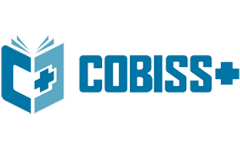Literature review on Determinants Affecting Knowledge Sharing
DOI:
https://doi.org/10.61841/4qf11v82Keywords:
Knowledge Sharing, Knowledge Worker, SECI Model, Port IndustryAbstract
Knowledge sharing, which has been recognized as a part of knowledge management. It is defined as a willingness to share and to seek between two parties: knowledge seekers and knowledge owners. This action was held to warrant the organization to remain relevant and the continuity of knowledge to exist and evolve, regardless of the availability of the knowledge owner. This paper aims to understand the current determinants that contribute to the knowledge sharing intention among knowledge workers and identify potential future research from the literature review. The outcome from the findings will allow the researcher to determine the substantial factors from various determinants of personnel and organization. In addition, the outcome from the paper also aims at assisting the personnel from academia in finding the proper channel to reach the knowledge worker and hence gaining the respective knowledge that is beneficial to them from the port operator industry themselves.
Downloads
References
[1] A., Abasaltian, A., and Angeles, L. (2016). The role of transformational leadership, organizational culture, and organizational learning in improving the performance of Iranian agricultural faculties. Journal of Knowledge Management, 18(1), 1–5.
[2] Ajzen, I. (1991), “The theory of planned behavior," Organizational Behavior and Human Decision Process, Vol. 50 No. 2, pp. 179-211.
[3] Al-Alawi, A.I., Al-Marzooqi, N.Y., and Mohammed, Y.F. (2007), “Organizational culture and knowledge sharing: critical success factors," Journal of Knowledge Management, Vol. 11 No. 2, pp. 22-42.
[4] Al-Busaidi, K. A., Olfman, L., & Al-Busaidi, K. A. (2017). Knowledge sharing occurs through inter-organizational knowledge sharing systems.
[5] Al-Busaidi, K.A., Olfman, L., Ryan, T., and Leroy, G. (2010), “Sharing knowledge to a knowledge management system: examining the motivators and the benefits in an Omani organization," Journal of Organizational Knowledge Management, Vol. 2010 No. 25835, pp. 1-12.
[6] Ardichvili, A., Page, V., & Wentling, T. (2003). Motivation and barriers to participation in virtual knowledge-sharing communities of practice, 7(1), 64–77.
[7] Asian Productivity Organization. (2002). Knowledge Management: A Key for Corporate Competitiveness.
Tokyo: Mediaworks Publishers
[8] Boateng, H., Agyemang, F. G., Okoe, A. F., & Mensah, T. D. (2017). Examining the relationship between
trustworthiness and students’ attitudes toward knowledge sharing. Library Review, 66(1/2), 16–27.
[9] Bock, G.W., Zmud, R.W., Kim, Y.G. and Lee, J.N. (2005), “Behavioral intention formation in knowledge
sharing: examining the roles of extrinsic motivators, social-psychological forces, and organizational
climate”, MIS Quarterly, Vol. 29 No. 1, pp. 87-111.
[10] Branch, A.E. (1988). Maritime Economics: Management and Marketing, 3rd Ed.
[11] Chen, S., Duan, Y., Edwards, J.S. and Lehaney, B. (2006), “Toward understanding inter-organizational
knowledge transfer needs in SMEs: insight from a UK investigation”, Journal of Knowledge Management,
Vol. 10 No. 3, pp. 6-23.
[12] Chen, S.-S., Chuang, Y.-W., Chen, P.-Y. (2012), “Behavioral intention formation in knowledge sharing:
examining the roles of KMS quality, KMS self-efficacy, and organizational climate”, Knowledge-Based
Systems, Vol. 31, pp. 106-118.
[13] Chlomoudis, C.I., Karalis, A.V., Pallis, A.A, 2003 Port Reorganisations and the Worlds of Production
Theory, European Journal of Transport and Infrastructure Research, 3, no. 1 (2003), pp. 77–94.
[14] Davenport, T.H., and Prusak, L. (1998), Working Knowledge, Harvard Business School Press, Boston, MA.
[15] De Langen, P. W. (2015). Port Management 3. United Nations Conference on Trade and Development,
15(9), 46.
[16] Gold, A.H., Malhotra, A. and Segars, A.H. (2001), “Knowledge management: an organizational capabilities
perspective”, Journal of Management Information Systems, Vol. 18 No. 1, pp. 185-214.
[17] Haque, M. M., Ahlan, A. R., Razi, M. J. M., & Subiyakto, A. (2017). Investigating factors affecting
Knowledge management and sharing on innovation in universities: a pilot study. Proceedings, 6th
International Conference on Information and Communication Technology for the Muslim World, ICT4M
2016, 64–69.
[18] Hassan, M. H., Arif, S., & Sidek, S. (2015). Knowledge and Practice for Implementing Internal Halal
Assurance System among Halal Executives. Asian Social Science, 11(17), 57–66.
[19] Kankanhalli, A., Tan, B.C.Y. and Wei, K.K. (2005), “Contributing knowledge to electronic knowledge
repositories: an empirical investigation”, MIS Quarterly, Vol. 29 No. 1, pp. 113-143.
[20] Kementerian Pengangkutan Malaysia. (2013). Pelan Strategik Pengurusan Sumber Manusia Kementerian
Pengangkutan 2013-2020.
[21] Lee, S. and Lim, G. (2005), “The impact of partnership attributes on EDI implementation success”,
Information & Management, Vol. 42, pp. 503-516.
[22] Liang T. P., Liu C. C., & Wu, C. H. 2008. Can social exchange theory explain personnel knowledge?
Sharing Behavior? A Meta-analysis.
[23] Lin, H.-F. (2006), “Interorganizational and organizational determinants of planning effectiveness for
Internet-based interorganizational systems”, Information and Management, Vol. 43 No. 4, pp. 423-433.
[24] Liu, Y. C., & Li, F. (2012). Exploration of Social Capital and Knowledge Sharing. International Journal of
Distance Education Technologies, 10(2), 17–38.
[25] Lu. A. A, Cheng J and Lee TS, An Evaluation of Strategic Alliances in Liner Shipping: An Empirical
Study of CKYH, 2006, Journal of Marine Science and Technology, Vol. 14, No. 4, pp. 202-212.
[26] Meersman, H., Van de Vorde, E., and Vanelslander, T., 2003, The Industrial-economic structure of the Port
and Maritime Sector: an Attemp to Quantification (Palermo: NAV’2003)
[27] Mohd Bakhari, I., and Zawiyah, M. Y. (2008). Factors Affecting Knowledge Sharing in Public Organizations in Malaysia. In Knowledge Management International Conference and Exhibitions (KMICe).
[28] Moore, G.C., and Benbasat, I. (1991), “Development of an instrument to measure the perceptions of adopting an information technology innovation," Information Systems Research, Vol. 2 No. 3, pp. 192-222.
[29] Noaman, A.Y., and Fouad, F. (2014), “Knowledge sharing in universal societies of some developing nations," International Journal of Academic Research, Vol. 6 No. 3, pp. 205-212.
[30] Nonaka, I. and Takeuchi, H. (1995), The Knowledge-Creating Company: How Japanese Companies Create
the Dynamics of Innovation, Oxford University Press, New York, NY.
[31] O’Dell, C. and Grayson, C. (1998), “If only we knew what we knew: identification and transfer of internal
best practices”, California Management Review, Vol. 40 No. 3, pp. 154-174.
[32] Pantouvakis A.M., Chlomoudis C.I., and Dimas A.G. 2010. Marketing Strategies in Port Industry: An
Exploratory Study and a Research Agenda. American Journal of Economics and Business Administration 2
(1): 64-72, 2010.
[33] Parent, M. M., MacDonald, D., & Goulet, G. (2014). The theory and practice of knowledge management
and transfer: The case of the Olympic Games. Sport Management Review, 17(2), 205-218.
[34] Peter W. Langen and Elvira Haezendonck (2012), Ports As Cluster of Economic Activity, The Blackwell
Companion to Maritime Economics, First Edition. Edited by Wayne K. Talley. 2012 Blackwell Publishing
Ltd. Published 2012 by Blackwell Publishing Ltd
[35] Porter, Michael E. (1985). Competitive Advantage: Creating and Sustaining Superior Performance. New
York: Simon and Schuster. Retrieved 9 September 2013.
[36] Roger Fullwood, J. R. (2017). An investigation of factors affecting knowledge sharing amongst UK
academics. Journal of Knowledge Management 2, 21(5), 1254–1271.
[37] Safayet Rahman, Md Zahidul Islam, A. D. A. A. (2017). Article information. Journal of Science and
Technology Policy Management, 8(3), pp. 275-298.
[38] Stopford, M., 2000, Maritime Economics, 2nd edn. (London and New York: Rouledge)
[39] Thompson G.F., Fordism, 2003, Post-Fordism, and the Flexible System of Production, 2017.
[40] Tzortzaki, A. M., & Mihiotis, A. (2014). A Review of Knowledge Management Theory and Future
Directions. Knowledge and Process Management, 21(1), 29–41.
[41] UNCTAD (2016), Port Management Series Volume 4, Port Performance, Linking Performance Indicators
to Strategic Objectives, New York, and Geneva. UNCTAD secretariat: UNCTAD/DTL/KDB/2016/1.
[42] UNCTAD. (2016). Review of Maritime Transport 2016. Review of Maritime Transport:
UNCTAD/RMT/2016.
[43] Van de Voorde, E., and Winkelmans, W., 2002, A general introduction to port competition and management.
In M. Huybrechts, H. Meersmman, E Van de Voorde, E. Van Hooydonk, A. erbeke, and W. Winkelmans (eds),
Port Competitiveness: An economic and Legal analysis of the Factors Determining the Competitiveness of
Seaports, pp. 1-16 (Antwerp: Editions De Boeck Ltd.), 1.
[44] Venkatesh, V. and Davis, F. (2000), “A theoretical extension of the technology acceptance model: four
longitudinal”, Management Science, Vol. 46 No. 2, pp. 186-204
[45] Wamitu, S. N. (2015). Tacit knowledge sharing in public sector departments in Kenya. Open Journal of
Business and Management, 3(January), 109–118.
[46] Wasko, M.M., and Faraj, S. (2005), “Why should I share? Examining social capital and knowledge
contribution in electronic networks of practice”, MIS Quarterly, Vol. 29 No. 1, pp. 35-57.
[47] Yasir, M., Majid, A., & Yasir, M. (2017). Nexus of knowledge-management enablers, trust, and knowledgesharing in research universities. Journal of Applied Research in Higher Education, 9(3), 424-438.
[48] Zhang, J. (2017). Benefit Model of Knowledge Sharing Behavior. Open Journal of Social Sciences, 5(8), 161–169.
[49] Zhang, X., Liu, S., Chen, X., & Gong, Y. (Yale). (2017). Social capital, motivations, and knowledge sharing intention in health Q&A communities. Management Decision, 55(7), 1536–1557.
[50] Zheng, T. (2017). A Literature Review on Knowledge Management in Organizations. Open Journal of Social Sciences, 4(1), 51–58.
Downloads
Published
Issue
Section
License
Copyright (c) 2020 AUTHOR

This work is licensed under a Creative Commons Attribution 4.0 International License.
You are free to:
- Share — copy and redistribute the material in any medium or format for any purpose, even commercially.
- Adapt — remix, transform, and build upon the material for any purpose, even commercially.
- The licensor cannot revoke these freedoms as long as you follow the license terms.
Under the following terms:
- Attribution — You must give appropriate credit , provide a link to the license, and indicate if changes were made . You may do so in any reasonable manner, but not in any way that suggests the licensor endorses you or your use.
- No additional restrictions — You may not apply legal terms or technological measures that legally restrict others from doing anything the license permits.
Notices:
You do not have to comply with the license for elements of the material in the public domain or where your use is permitted by an applicable exception or limitation .
No warranties are given. The license may not give you all of the permissions necessary for your intended use. For example, other rights such as publicity, privacy, or moral rights may limit how you use the material.
















